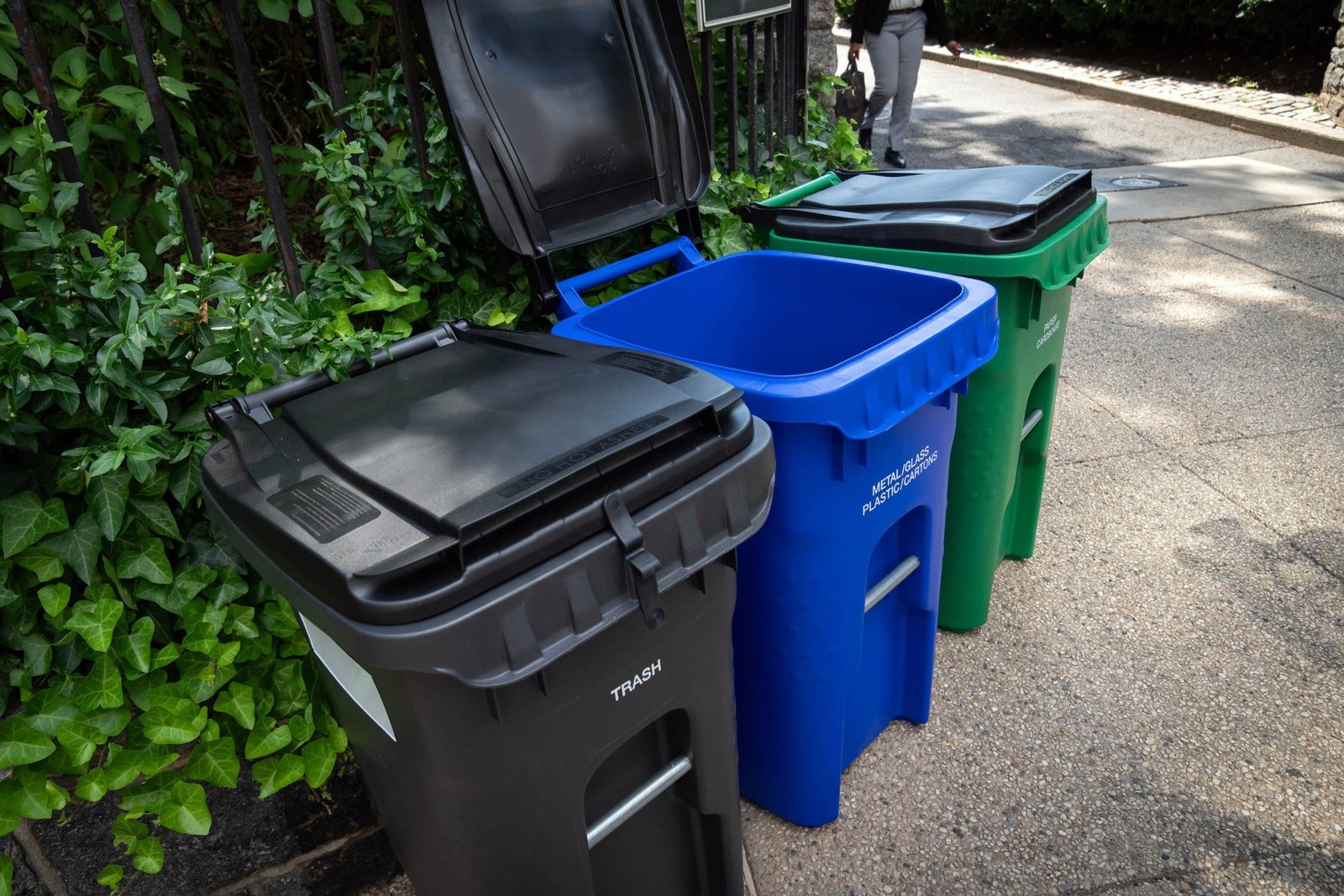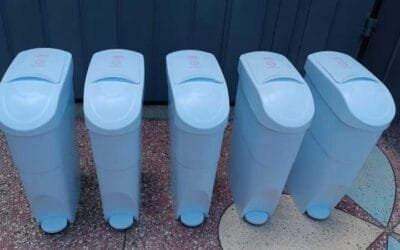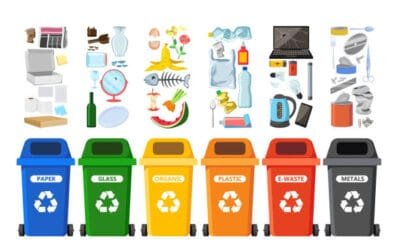Kenya is experiencing rapid urbanization, with cities like Nairobi, Mombasa, and Kisumu expanding at an unprecedented rate. As urban areas grow, so does the amount of waste generated daily. Households, businesses, and industries contribute to tons of waste, which, if not properly managed, can lead to serious environmental and health issues.
To address this challenge, the government and private sector have been actively promoting efficient waste management systems. Local authorities are enforcing regulations that require businesses and households to have proper waste disposal mechanisms, including the use of designated waste bins. This shift has led to an increased demand for high-quality, durable, and functional waste bins across the country.
Key Features to Look for in Waste Bins
Selecting the right waste bin is crucial for effective waste management. Here are some essential features to consider before making a purchase:
- Durability – Waste bins should be made from strong, long-lasting materials that can withstand exposure to different weather conditions and frequent use.
- Capacity – Bins come in various sizes, from small 10-liter bins for personal use to large industrial bins exceeding 240 liters. The choice depends on the amount of waste generated.
- Design – Features such as lids, wheels, and handles enhance convenience, making it easier to transport and dispose of waste without spillage or odor issues.
- Material – Depending on the environment and type of waste, you can choose between plastic, metal, or composite waste bins.
- Ease of Maintenance – Waste bins should be easy to clean and resistant to stains or corrosion, ensuring hygiene in their surroundings.
Types of Waste Bins Available in Kenya
There are different types of waste bins available in the Kenyan market, catering to various needs:
- Household Waste Bins – These are small to medium-sized bins used in kitchens, bathrooms, and living spaces for general waste disposal.
- Commercial and Industrial Waste Bins – Large-capacity bins designed for offices, factories, restaurants, and public spaces where high waste generation is common.
- Recycling Bins – Color-coded bins meant for sorting and collecting recyclable waste such as plastic, paper, and glass.
- Smart Waste Bins – These modern bins are equipped with sensors that detect when they are full and notify waste collection services, improving efficiency.
Top Waste Bin Manufacturers in Kenya
Several companies in Kenya specialize in manufacturing high-quality waste bins, ensuring that consumers have reliable options. Some of the leading manufacturers include:
- Techno Plast Limited – Known for its durable plastic waste bins, ideal for both household and commercial use.
- Kenpoly Manufacturers Ltd – A well-established brand offering a wide range of plastic bins, including recycling bins and large industrial containers.
- Metro Plastics Kenya – Specializes in producing waste bins that cater to homes, offices, and hospitals, focusing on quality and durability.
Best Materials Used for Manufacturing Waste Bins
Waste bins are made from various materials, each offering unique benefits:
- Plastic – Lightweight, cost-effective, and available in multiple colors for waste segregation. Ideal for indoor and outdoor use.
- Metal – Highly durable and resistant to damage. Commonly used in industrial and public spaces.
- Composite Materials – Eco-friendly and long-lasting, offering the advantages of both plastic and metal waste bins.
Customization Options for Waste Bins
Manufacturers in Kenya offer various customization options to cater to different needs:
- Branded Waste Bins – Businesses and organizations can customize bins with their logos and branding for corporate identity and sponsorship programs.
- Color-Coded Bins – Helps with waste segregation (e.g., green for organic waste, blue for recyclables, red for hazardous waste).
- Specialized Waste Bins – Designed for specific waste types such as medical waste bins for hospitals, biohazard waste bins, or ash bins for restaurants and factories.
Government Regulations on Waste Management in Kenya
The Kenyan government has introduced strict policies to improve waste management and environmental conservation. Some key regulations include:
- Businesses and households must use appropriate waste disposal methods, including having designated waste bins.
- Industries generating hazardous waste must comply with disposal guidelines set by the National Environment Management Authority (NEMA).
- Plastic waste management initiatives encourage recycling and the use of biodegradable waste bins.
Failure to comply with these regulations can result in penalties or fines, making it crucial for businesses and individuals to adopt responsible waste management practices.
Innovations in Waste Bin Manufacturing
With advancements in technology, waste bin manufacturing has evolved significantly. Some of the latest innovations include:
- Smart Waste Bins – These bins use sensors to detect waste levels and notify collection teams when they are full, reducing overflow and inefficiencies.
- Recycled Materials – Many manufacturers are now producing waste bins using recycled plastic, contributing to environmental sustainability.
- Solar-Powered Waste Bins – Equipped with solar panels, these bins can compact waste automatically, allowing them to hold more garbage before requiring collection.
Challenges Faced by Waste Bin Manufacturers in Kenya
Despite the growing demand, waste bin manufacturers face several challenges:
- High Production Costs – Raw materials and manufacturing processes can be expensive, especially for high-quality and durable bins.
- Competition from Imports – Imported waste bins, often cheaper but of lower quality, pose competition to local manufacturers.
- Consumer Awareness – Many businesses and households are still unaware of the benefits of investing in high-quality waste bins, leading to a preference for cheaper alternatives.
How to Choose the Best Waste Bin Manufacturer
When selecting a waste bin manufacturer in Kenya, consider the following factors:
- Product Quality – Look for durable and well-designed bins that meet your specific needs.
- Customer Reviews – Check feedback from previous buyers to gauge the reliability of the manufacturer.
- Pricing and Warranty – Compare prices and ensure the manufacturer offers a warranty for their products.
- After-Sales Support – Reliable manufacturers provide customer support and assistance in case of any issues.
Where to Buy Waste Bins in Kenya
Waste bins are available from various sources, including:
- Directly from Manufacturers – Buying from manufacturers ensures quality and better pricing.
- Online Marketplaces – Platforms like Jumia and AfyaMed Supplies offer a range of waste bins with delivery options.
- Retail Stores and Hardware Shops – Many home improvement stores and supermarkets stock different types of waste bins.
Cost of Waste Bins in Kenya
The price of waste bins varies depending on size, material, and features:
- Small household waste bins – Ksh 500 – Ksh 1,500
- Medium-sized waste bins – Ksh 2,000 – Ksh 5,000
- Large industrial waste bins – Ksh 10,000 – Ksh 100,000
Conclusion
Proper waste management is essential for maintaining cleanliness and environmental sustainability. With the increasing demand for waste bins in Kenya, investing in the right bin ensures efficient waste disposal for households, businesses, and industries. By considering factors like durability, capacity, and design, you can choose a waste bin that meets your needs. Whether you’re looking for a simple household bin or a large industrial waste container, Kenya offers plenty of reliable options. Whether you’re looking for a simple household bin or a large industrial container, you can browse our collection of waste bins for quality and affordability.
FAQs
1. What are the best waste bin materials?
Plastic, metal, and composite materials are commonly used.
2. Where can I buy waste bins in Kenya?
You can purchase them from manufacturers, online stores, and retail outlets.
3. What is the average cost of a waste bin?
Prices range from Ksh 500 to Ksh 50,000 depending on size and material.
4. Are smart waste bins available in Kenya?
Yes, some manufacturers offer sensor-equipped bins for smart waste management.
5. How do I choose the right waste bin?
Consider durability, size, intended use, and customization options before purchasing.
By making informed choices, individuals and businesses can contribute to a cleaner and more sustainable Kenya.




Informational